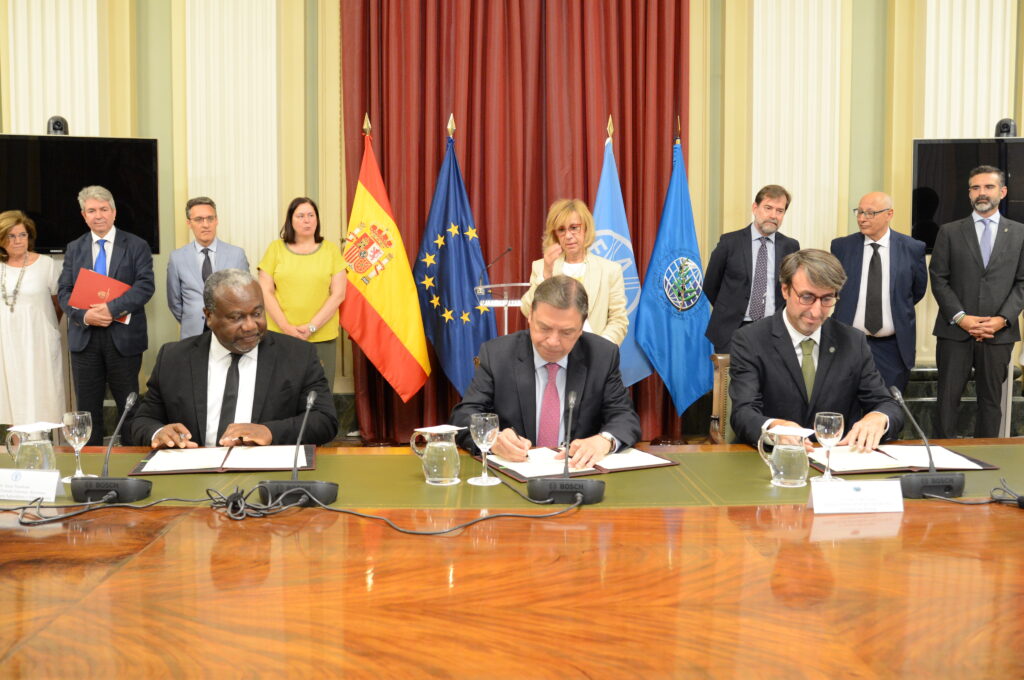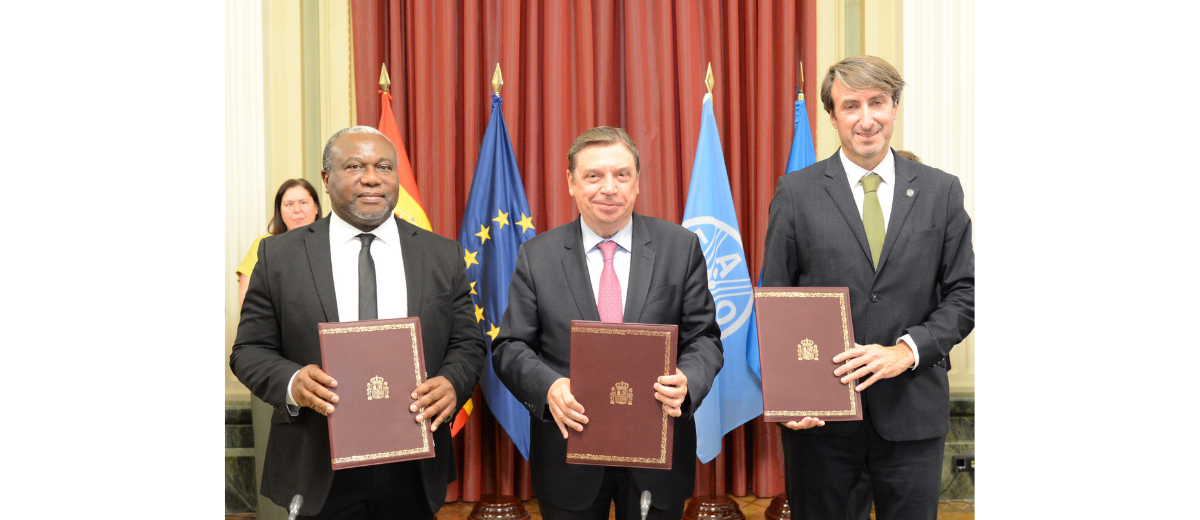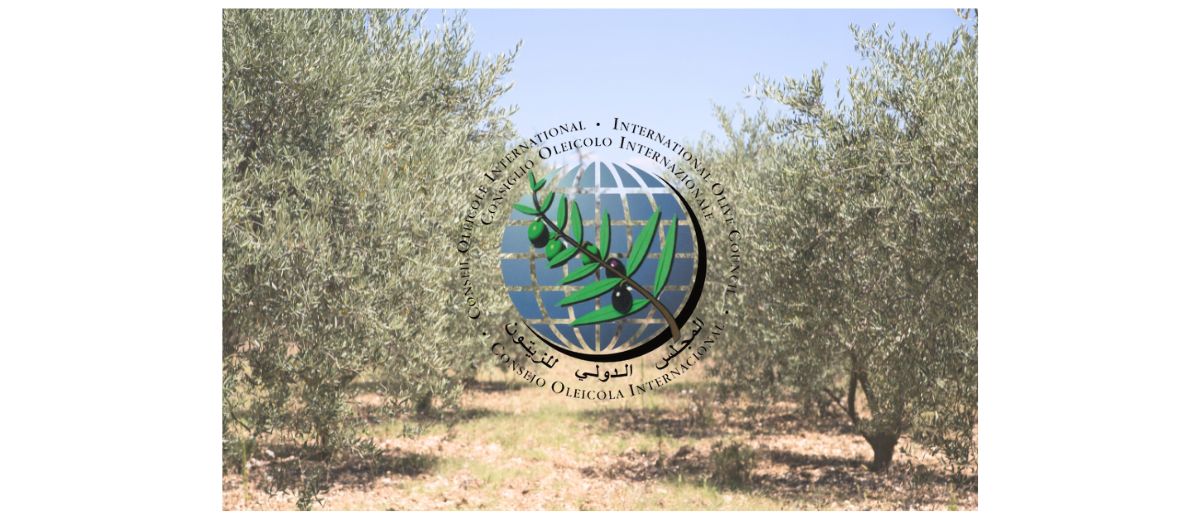The tri-partnership aims to consolidate the IOC’s international network of olive germplasm banks under the FAO’s International Treaty on Plant Genetic Resources for Food and Agriculture
The International Olive Council (IOC), the intergovernmental organization coordinating the international network of olive germplasm banks; the Spanish Government, host of one of the most significant international collections of Olea europeae; and the United Nations Food and Agriculture Organization (FAO) have come together to sign a historic collaboration agreement to consolidate Spain’s collection under the FAO’s International Treaty on Plant Genetic Resources for Food and Agriculture (ITPGRFA).
This agreement underscores yet another step towards the conservation of the olive grove’s phytogenetic resources. These resources play a fundamental role not only in the conservation of biodiversity and as the foundation of this agro-food socio-economic activity, but also in addressing the challenges posed by climate change, such as varieties resistant to pests and diseases, drought and many others. One of the IOC’s primordial objectives is the identification, conservation and utilization of the olive grove’s phytogenetic resources. The IOC coordinates olive germplasm banks in almost all its twenty Member States, as well as seven international collections, one of them in Spain. The Organization and the FAO signed a Memorandum of Understanding in 2021 to develop, promote and strengthen joint actions to foster a more efficient and sustainable olive sector. Consolidating the international network of olive gene banks under the ITPGRFA is a strategic step in this regard, which is why the IOC actively encourages its member countries to sign agreements such as this one with a view to consolidating an international network of olive germplasm banks under the auspices of ITPGRFA. In this regard, the Government of Spain, the world’s first producer of olive oil and host to a vast international collection of Olea europea in Córdoba, is the first country to sign an agreement with the ITPGRFA and the IOC to conserve and foster research with regards to the olive sector.

Jaime Lillo, IOC Executive Director, welcomed the tripartite agreement, recalling that “part of the solution to climate change lies in the olive grove’s phytogenetic resources, which constitute a real treasure for our shared heritage.”
Luis Planas, Spanish Minister for Agriculture, Fisheries and Food, highlighted the importance of the plant genetic diversity from the World Olive Germplasm Bank. According to Planas, “Spain is responsible for guaranteeing that the olive tree continues to be one of the essential crops to guarantee food security and the backbone of large rural areas and a source of wealth for olive-growing communities”.
The ITPGRFA Secretary, Kent Nnadozie, emphasized that “this landmark agreement, which integrates the olive collections in Cordoba into the multilateral system of the Plant Treaty, is a significant milestone for the world’s agriculture and biodiversity. It underscores the global commitment to preserving the genetic diversity of olive plants and promoting equitable access to these vital resources. Together with the IOC, we are ensuring that these valuable resources are conserved and made accessible for the benefit of all, fostering sustainable agriculture and global food security”.
The Andalusian Regional Minister of Agriculture, Fisheries, Water and Rural Development, Ramón Fernández Pacheco, and the Rector of the University of Cordoba, Manuel Torralbo Rodríguez, also took part in the event, as an example of the inter-institutional public-private collaboration.
————-
The International Olive Council is the world’s only international, intergovernmental organization exclusively dedicated to the olive sector. Under the International Agreement on Olive Oil and Table Olives, 2015, that it administers, it is the international host institution of the network of olive germplasm collections, representing a global, freely accessible resource for the scientific community of healthy and authentic Olea europea phytogenetic resources.
Spain is the world’s first producer of olive oil and host to one of the most important IOC international olive germplasm collections in Cordoba with almost 1000 varieties. The Government of Spain is heavily involved in conserving the world’s olive heritage and fostering the sector’s sustainability.
The United Nations Food and Agriculture Organization adopted the International Treaty on Plant Genetic Resources for Food and Agriculture in 2001 to include the conservation and sustainable use of plant genetic resources for food and agriculture, and the fair and equitable sharing of benefits arising from their use.










